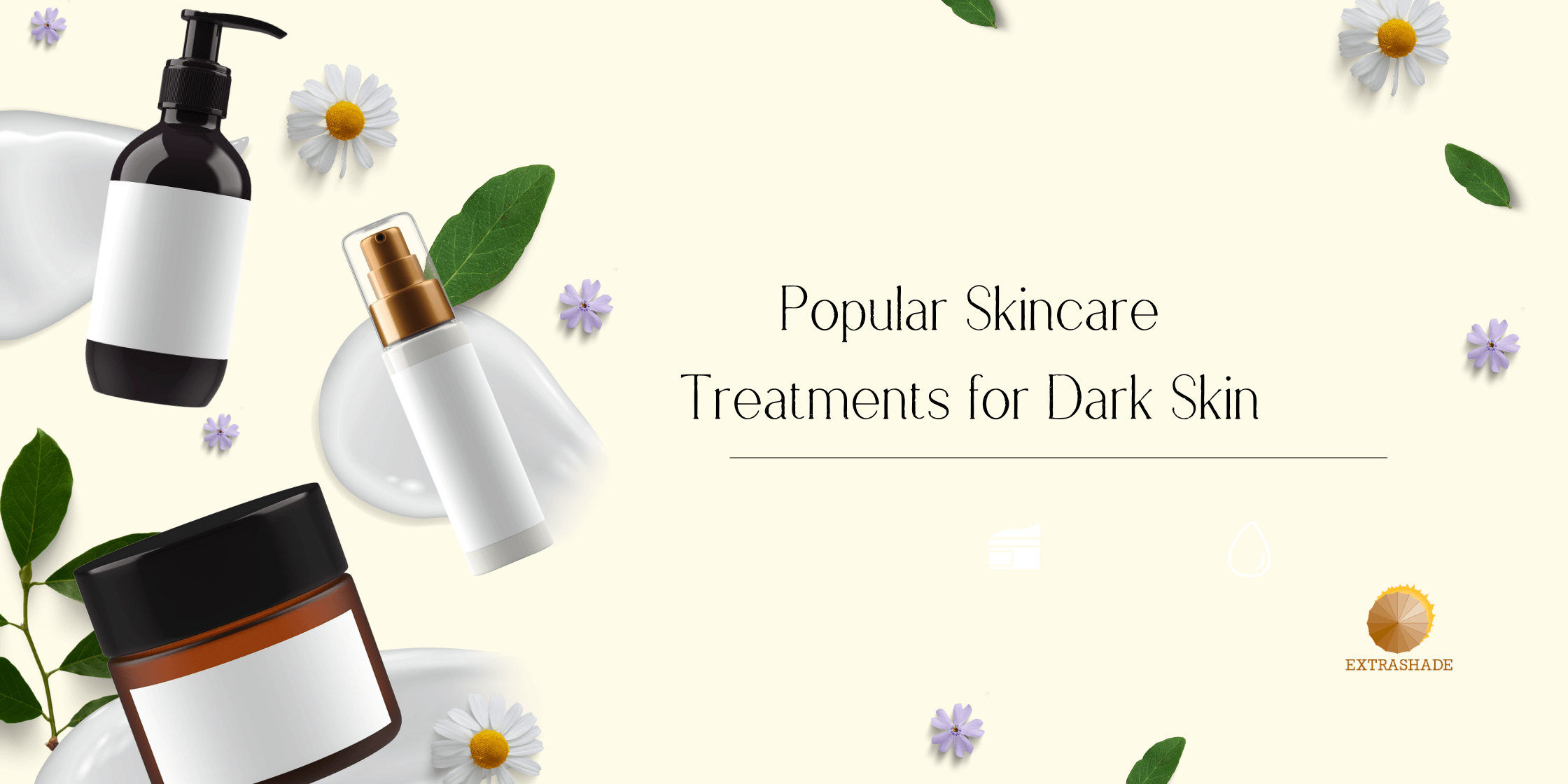Skincare treatments for dark skin require a nuanced approach due to the unique characteristics of higher melanin content. Dark skin is often more resilient against sun damage but is also more prone to hyperpigmentation and keloid scarring. Effective skincare treatments must address these concerns while promoting overall skin health.
Understanding Dark Skin
Melanin, the pigment that gives skin its color, plays a protective role against UV radiation. However, it also makes dark skin more susceptible to discoloration and uneven tone. Understanding the specific needs of dark skin is crucial for selecting the right treatments.
Common Skin Concerns for Dark Skin
- Hyperpigmentation: Excess melanin production can lead to dark spots and uneven skin tone.
- Keloids and Hypertrophic Scars: Dark skin is more prone to developing raised scars after injury.
- Acne and Post-Inflammatory Hyperpigmentation (PIH): Acne can leave dark spots that linger longer on dark skin.
- Melasma: Hormonal changes can cause dark patches, often exacerbated by sun exposure.
Popular Skincare Treatments for Dark Skin
- Chemical Peels
- Glycolic Acid Peels: These help in exfoliating the skin, reducing hyperpigmentation, and improving overall skin texture. Glycolic acid peels must be used cautiously to avoid irritation and worsening pigmentation.
- Salicylic Acid Peels: Particularly effective for acne-prone skin, salicylic acid peels help to unclog pores and reduce inflammation without causing excessive dryness or irritation.
- Lactic Acid Peels: A milder option that helps in skin renewal and brightening without the risk of harsh reactions.
- Microdermabrasion
- This treatment involves physical exfoliation to remove dead skin cells and promote the growth of new skin. It’s effective for treating mild hyperpigmentation and improving skin texture. Care should be taken to avoid over-exfoliation, which can lead to irritation and darkening of the skin.
- Laser Treatments
- NdLaser: This laser type is preferred for dark skin because it penetrates deeper into the skin without causing excessive heat on the surface, reducing the risk of burns and pigmentation changes.
- Fractional Lasers: These lasers create micro-injuries that stimulate collagen production and improve skin texture and tone. They must be used with caution to prevent post-inflammatory hyperpigmentation.
- Topical Treatments
- Retinoids: Effective for acne and anti-aging, retinoids promote cell turnover and reduce pigmentation. They must be used with a gradual introduction to avoid irritation.
- Hydroquinone: A powerful skin lightening agent that reduces hyperpigmentation. Its use should be monitored by a dermatologist to avoid potential side effects.
- Vitamin C: An antioxidant that brightens the skin and reduces dark spots. It is generally well-tolerated and suitable for daily use.
- Niacinamide: Known for its anti-inflammatory properties, niacinamide helps in reducing dark spots and improving skin texture.
- Microneedling
- This involves using fine needles to create micro-injuries in the skin, stimulating collagen production and improving the appearance of scars and pigmentation. It is effective for treating acne scars and promoting overall skin rejuvenation.
- Hydrafacial
- A non-invasive treatment that combines cleansing, exfoliation, extraction, hydration, and antioxidant protection. It’s suitable for all skin types and helps in improving skin tone, texture, and hydration.
Preventive Measures
- Sun Protection: Daily use of broad-spectrum sunscreen is crucial to prevent hyperpigmentation and protect against UV damage.
- Gentle Skincare Routine: Using gentle cleansers and moisturizers helps maintain skin barrier integrity and prevent irritation.
- Regular Dermatologist Visits: Regular check-ups with a dermatologist ensure that any skin issues are promptly addressed and treated with suitable interventions.
Conclusion
Effective skincare treatments for dark skin focus on addressing common concerns like hyperpigmentation, acne, and scarring while promoting overall skin health. With the right approach and professional guidance, individuals with dark skin can achieve and maintain a clear, even complexion. It’s essential to choose treatments that are specifically formulated and proven to be safe for dark skin to avoid adverse effects and achieve the best results.

